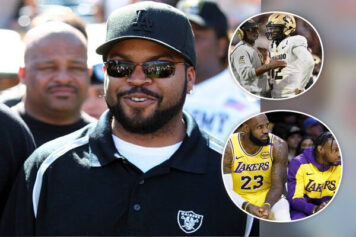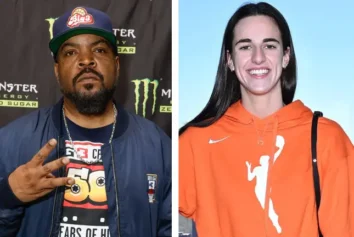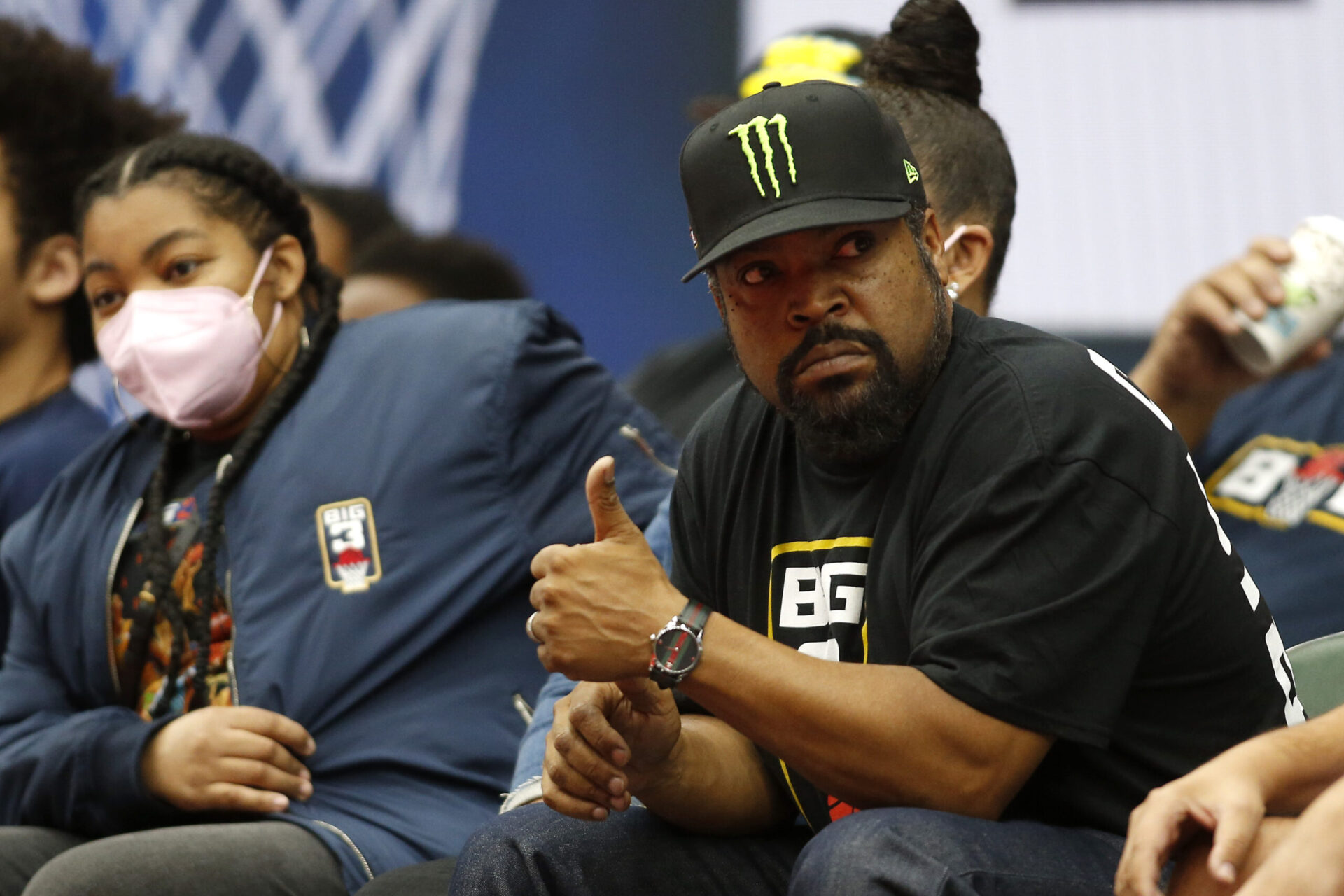The Big3 is successfully carving out a lasting niche in the sports entertainment landscape.
Big3 Co-founders Ice Cube and Jeff Kwatinetz are like snipers, meticulously choosing the perfect targets to help elevate their burgeoning 3-on-3 professional basketball league, but not wasting ammunition on anything that doesn’t help strengthen the league and the culture it represents.
Going against the grain, while promoting basketball in it’s most basic form, has been the formula from jump and it’s working as the league’s success continues to grow. The Big3’s third season kicked off its 11-week schedule last weekend in Detroit and Indianapolis, and the action tipped off immediately.
Over the years, there have been sideshow pro football leagues that failed to captivate the NFL fan such as the USFL and recent, quickly folding AAF. There have also been pro alternatives to the NBA such as the CBA and USBL, yet none of those leagues ever had the potential staying power that the Big3 has demonstrated.
Success From Jump
The BIG3 hit the scene in 2017, and while it didn’t blow the sports world away, it was obvious Cube and company had something special when over 15,000 people packed into Barclays Arena to see Allen Iverson play in Brooklyn.
It slowly began to carve out its own niche in the sports entertainment space, particularly through an increase in attendance figures, a +25% YoY increase (to 13,484) in their sophomore season.
That boost encouraged the league’s brain trust to continue to expand the league and start to partner with sports brands like Adidas, entering into a new 3-year strategic, marketing partnership with the shoe and sports apparel giant. It’s just one of many power moves Big3 has made in a short time.
Another move was to use the power of exposure on television, shifting from Fox Sports to a new network television deal with CBS.
CBS isn’t paying to acquire the broadcast rights to The BIG3, but Kwatinetz says that “broad exposure is critical to a sport’s success; leagues need to be in front of as many people as they can and CBS allows us to do that.”
Anyone who has played ball in any way, no matter the age, can totally dig the concept; first team to 50 wins, half-court play, none of those restrictive NBA rules and even a four point shot.
In terms of keeping things interesting, you can’t beat that.
Kwatinetz insists that the numbers show that Big3 has a “younger audience than all four of the major sports leagues.”
Big3 did about 1m people per hour rating last night! We dominated 18-34; our audience is young and when you see the comparisons remember that our 8pm hour is being compared to shows shown at 8 every time zone where we are 5 in PST, 6 Mtn, yet still bets 18-34 on our first game!!
— Jeff Kwatinetz (@JeffKwatinetz) June 30, 2018
At the same time, with its array of former NBA characters, All-Stars, champions and fan favorites, the league easily bridges generations.
Ice Cube has kept his eyes on what has driven success for the league and brought in more former NBA household names this year, ensuring that the league will have its most talented and competitive season yet.
Allen Iverson, Chancey Billups, Kenyon Martin, Stephen Jackson and Amar’e Stoudemire were the biggest player names over the first two seasons, while basketball legends like Julius Erving, George Gervin, Rick Barry, Gary Payton, Michael Cooper, Charles Oakley and Nancy Lieberman roamed the sidelines as head coaches.
With that roster on board, Cube needed to take things up a notch for 2019.
BIG3 Big Announcements:
1. Expanding from 8 teams to 12
2. Lowering age from 30 to 27
3. Allowing NBA & Int’l pro players
4. Lisa Leslie will head coach the TRIPLETS
5. Playing in 18 cities
6. Playing 2 times a week— Ice Cube (@icecube) January 10, 2019
Along with the changes came more names such as Gilbert Arenas, Lamar Odom and Joe Johnson, players with All Star and playoff credentials. Even players like Greg Oden have been given a new life in the Big3.
All The Right Moves
So what makes the Big3 different than other start up leagues? It’s the thought process and business acumen of its braintrust.
Compared to the AAF, the league’s cost of travel is much smaller as the rosters, staff and equipment aren’t anywhere as large.
The BIG3 rosters have just 6 players (+ 1 coach) and a single arena, while the AAF was renting 4 football stadiums each week to host games. And while skeptics questioned their use of NBA arenas, the Big3’s average of 13, 500 fans in nine arenas last season quickly silenced the doubt.
For more perspective, 7 NBA or NHL franchises drew less than 15,000 fans per game this year, including two that drew less than 13,500 (Panthers, Islanders).
It’s a tribute to the culture, which draws and wins.
The talent is on point, but the league has all been at forefront of some groundbreaking moments in sports history.
First, legendary baller Nancy Lieberman was hired to coach the Power squad, making Lady Magic the first woman in history to coach a men’s professional basketball team. She followed that up by leading Power to a championship, becoming the first woman to lead a men’s pro hoops squad to a ring.
This season, legendary WNBA Hall of Famer Lisa Leslie was chosen to coach the Triplets.
The league demonstrated its progressive nature by attacking the issue of diversity and also the debate around CBD, separating itself from other leagues by legalizing it after a few months of debate.
“This is a no-brainer decision,” said Kwatinetz to CBSSports.com. “This is a medical decision. It is a medical and humane decision. To not allow athletes to use CBD and instead to force them to use opioids is irresponsible and perhaps even disgusting. It reflects an attitude of not caring about player health.”
With the opioid crisis destroying so many lives, many have pushed for the legalization of CBD in pro sports, saying that it’s less harmful than prescription pain medication. And with the World Anti-Doping Agency (WADA) removing CBD from list of prohibited substances this year, the move by the BIG3 made sense.
It’s more of a people’s league than any of the major pro sports and there’s a market for that.
Ice Cube has a way of drawing people in through the culture, and he employed that skill in his attempt to purchase Disney’s 22 RSNs (Regional Sports Networks) earlier this year. While he and his team didn’t ultimately win the $10 billion prize, the statement he and LL Cool J made in the attempt spoke volumes and inspired Black visionaries to dream bigger.
Ice Cube And LL Cool J Plot Sports TV Takeover – The Shadow League https://t.co/xIeJnR1r8K
— LA MAQUINA DE SOMBRAS (@FANalyst1) March 16, 2019
Just three years in and Big3 is gaining momentum every day. We even have major organizations like FIBA refusing to let their top players participate in the league that is growing in stature, marketability, and viability.
Ice Cube and his crew are coming and there’s nothing any of those culturally-deficient leagues can do about it. His credibility as a business mogul, rap legend and movie star and his dedication to providing opportunities for minorities, women and those renegades who aren’t accepted by the status quo, only makes us more curious as to what the Big3 League and its founding fathers will do next.
So for those doubting whether Ice Cube and the Big3 are here to stay, we say “Yay Yay!”



